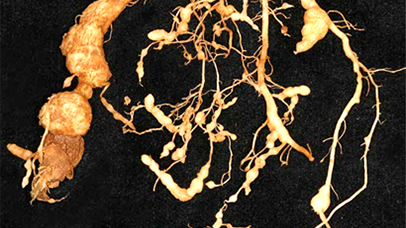Agriculture
Nematodes: what they are and how to control them─── ELSABÉ RICHARD 05:00 Tue, 31 May 2022

OFM News’ Dane Beisheim sat down for a chat with Dr Chantelle Girgan - a nematologist at the Plant Health Institute of the Agricultural Research Council (ARC), to discuss exactly what nematodes are and why they are a pest for farmers.
See PODCAST below
Girgan explains that nematodes are commonly known as eelworms or roundworms and are microscopic animals.
She explains that nematodes are divided into two groups, namely plant-parasitic nematodes which are agricultural pests, and free-living nematodes, which are known to be the beneficial nematodes.
ALSO READ: Deel 1: Aalwurms - wat dit is en hoe om dit te identifiseer
According to Girgan, plant-parasitic nematodes are dangerous to crops.
She explains that their work as nematologists is to diagnose and identify what the pest on the crops are, as well as to do research and test new products in a bid to establish which of the products can control them, among other research.
What nematodes do
“In South Africa, we have about 492 plant-parasitic nematode species, each with its own host range. So, what they would do is they attack different parts of the plants. Most of them attack the root of the plant… which makes it so that the plant cannot take up nutrients and water. Eventually, the plant will die,” explains Girgan.
ALSO READ: Deel 2: Aalwurms – nadele en maatreëls
She further adds that other nematodes feed on the leaves of the plant and that other nematodes penetrate seeds. When farmers use these seeds, they distribute the nematodes further.
How to control nematodes
Girgan advises that the best way to control nematodes is to make use of an integrated pest management system. By implementing this, farmers can use chemical or biological products or cultural methods such as intercropping, trap cropping or multi-cropping.














